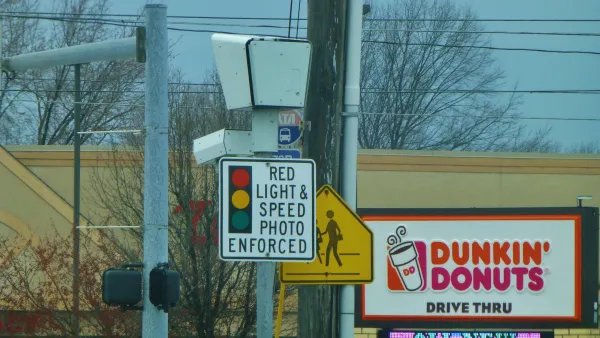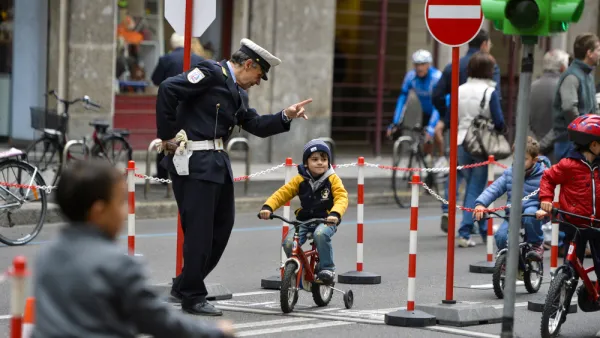Similar to a local proposal by San Francisco cyclists to reduce priority for for ticketing cyclists for rolling through stop signs, a state senator hopes to do with state legislation for motorists making "California Stops" at red lights.
There are probably more differences than similarities between the Idaho and California stop proposed legislation: one is local, applying to San Francisco only, the other is state legislation. One would waive the ticket, the other merely reduces the fine. And of course, one applies to bikes, the other to motor vehicles.
But what they share in common is that in each case, the legislation applies to vehicles which do not make a "complete stop," currently illegal for both bikes at stop signs and motorists making a permitted "right on red."
San Francisco Mayor Ed Lee has vowed to veto the San Francisco "Idaho Stop" proposal, which has majority, but not veto-proof, support among the Board of Supervisors.
Senate Bill 681, authored by Senator Jerry Hill (D-San Mateo) cruised through the Senate Transportation and Housing Committee on Jan. 12, receiving unanimous support "before being referred to the Appropriations Committee," writes Samantha Weigel of the Daily Journal.
Hill’s Senate Bill 681 proposes reducing the current base amount of the violation to $35 instead of the current $100, an amount typically reserved for dangerous maneuvers like speeding in excess of 25 mph. Straight through red light and left turn on red violations would remain subject to the $100 base fine, according to Hill’s office.
Hill emphasized he’s not advocating that the law shouldn’t be enforced, but that the penalty shouldn’t be excessive or overly burdensome — particularly as statistics show few accidents are caused by the infraction.
Weigel provides data, though somewhat dated, to back up that last point:
Of the 6.3 million crashes nationwide in 1998, less than .04 percent involved a driver making a right turn on a red light, according to a 2001 National Highway Traffic Safety Administration (NHTSA) study. Yet the majority of red light cameras tickets in many cities, particularly San Mateo and Los Angeles, are issued to drivers making slow-moving right turns, according to Hill.
A review of past Planetizen posts on red light cameras shows the vast majority aimed at either eliminating or supporting the use of red light cameras. Considering that use of these controversial cameras "has been in decline since 2013," wrote Daniel C. Vock for Governing last March, a reduced fine for illegal right-hand turns may not be such a bad thing if it prevents more cities from eliminating them all together.

Analysis: Cybertruck Fatality Rate Far Exceeds That of Ford Pinto
The Tesla Cybertruck was recalled seven times last year.

National Parks Layoffs Will Cause Communities to Lose Billions
Thousands of essential park workers were laid off this week, just before the busy spring break season.

Retro-silient?: America’s First “Eco-burb,” The Woodlands Turns 50
A master-planned community north of Houston offers lessons on green infrastructure and resilient design, but falls short of its founder’s lofty affordability and walkability goals.

Test News Post 1
This is a summary

Analysis: Cybertruck Fatality Rate Far Exceeds That of Ford Pinto
The Tesla Cybertruck was recalled seven times last year.

Test News Headline 46
Test for the image on the front page.
Urban Design for Planners 1: Software Tools
This six-course series explores essential urban design concepts using open source software and equips planners with the tools they need to participate fully in the urban design process.
Planning for Universal Design
Learn the tools for implementing Universal Design in planning regulations.
EMC Planning Group, Inc.
Planetizen
Planetizen
Mpact (formerly Rail~Volution)
Great Falls Development Authority, Inc.
HUDs Office of Policy Development and Research
NYU Wagner Graduate School of Public Service



























